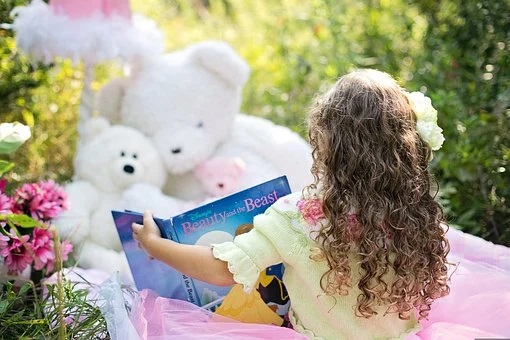Reasons How Storytelling Is Important For Kids
Stories are a favorite with children. Stories can be magic. They can create other worlds, excitements, impressions, and much more, all while making everything seem extraordinary every day. Stories can inspire empathy and take us on amazing journeys. Stories can make us laugh, cry, jump with fear, and then bring us back to our senses with a happy ending. We learn to enjoy stories from an early age. This is a sure way to make us happy and help us understand the world. Let’s take a look at storytelling and how it can benefit kids.
Why Storytelling is Important for Kids?

These are some of the most important powers of storytelling. Take a look at these remarkable storytelling powers!
- They help children feel at ease with new people, places, and situations.
- Provide insight into different beliefs and values
- Share your common life experiences.
- Encourage children to think about and feel the rush of new ideas.
- Indicate differences and commonalities among cultures across the globe.
- Inspire a feeling of well-being, relaxation, and leisure.
- To increase children’s enthusiasm and convey impressions
- Encourage effective participation.
- Improve your linguistic proficiency.
- Encourage creativity and intuition.
- Encourage teamwork among students.
- Enhance your listening skills
How Storytelling Is Important for Kids?

Stories are an integral part of the growth and upswing of children. Children can be like their friends by reading stories and getting to know the characters.
Storytelling is a great way to increase a child’s ability to see the future. This allows children to develop their vision early on. Through exercises such as storytelling, we can help our children build a vocabulary and encourage creativity.
Children greatly benefit from storytelling, a historical process. Children learn language tones and terms that are not common in normal speech when they listen to stories. Storytelling encourages children to have good memory skills, as they are able to recall key details from the story and identify characters.
1. Children’s confidence levels increase
Children who are able to listen well will have higher levels of confidence. They will feel more able to participate fully in classes, which is a benefit for the school. Another part of building faith and self-esteem involves recognizing your place in the world.
Although storytelling has many positive influences, it is not always easy to get them to pay attention to you. You might find them tired, or they may prefer to play with their plush toy. Don’t limit yourself to reading a book when you read a story to them.
Storytelling helps children to develop dignity, learn vocabulary, understand, and cope with emotions.
2. Language and Learning
Stories are a great way to introduce new words or ideas into children’s vocabulary. This is one of the greatest advantages of storytelling. They help children understand concepts such as size, volume, color, pattern, inside and out, figures, and the names and meanings of things.
They can also teach children daily habits like how to brush their teeth, take care of their pets, clean up after themselves, and how cook food.
They can also be used to teach more advanced ideas such as the meaning of sharing, time passing, and compassion. They are helpful in explaining traumatic events such as divorce and bereavement.
Children can benefit from fantasy stories based on real life. It helps them understand the world and how different it is. The best thing about stories is the way they are explained. They learn by simply reading the stories.
3. Source of Relaxation
Children can find relief by telling stories to them, especially before bedtime. These stories allow children to forget about their worries and let themselves be engrossed in fiction for a while. Children can relax by being able to understand a favorite story and enjoy the rhymes, rhyming, replaying in a picture book, and the sense of security that reading together can provide.
4. Development of the Imagination
Stories can help expand a child’s imagination by giving them new ideas. These ideas could be about other planets, rockets, time periods, or fictional characters. It encourages children to see that they can and should visualize anything they desire.
Stories can be either very real or completely fictional. This is what makes them so appealing. You can read about children in the same situation and another species (Martians on Jupiter as an illustration) the next.
5. Coping with Feelings
This is a major advantage of storytelling for children, believe it or not. Children can learn to accept and understand their emotions by listening to stories that contain emotions. They learn to accept that others feel the same and are not alone. This helps the child understand that emotions are normal and should be expressed.
You can see that children’s stories are important for many reasons. They form an integral part of their growth process. Writing can be a great pleasure and a source of enjoyment for writers.
What Makes a Good Story for Kids?

1. Strong characters that evoke strong emotions
No matter how difficult or simple, good stories for children can bring joy. Children can laugh or cry when they are presented with characters they care about.
2. A Story That Teaches
Good stories can help children learn simple theories/concepts/ideas related to numbers, letters, or colors. They can also help children develop empathy, compassion, attitude, and acceptance.
3. Mind-expanding terminology, portrayals, and concepts in A Story
Children’s storybooks are great for sharing stories with their friends.
Storytelling Activities for Kids

There are many great storytelling activities that kids can do. Let’s take a look at a few.
1. Storytelling prompts Jar
You will need a jar empty and some pieces of paper. Write a random name or word on each piece of paper. You can write anything you like, including a dog, goddess, or a term with a list of story prompts for children. All the pieces of paper that have been torn up should be put in the jar. Then, shake them all together and ask your child to pick a piece from the jar. The individual must use the phrase or term on the paper to tell a story. It’s fascinating, isn’t it? It’s easy to do for your adorable little ones.
2. Use Maps to Tell Stories
Next, the DIY pirate treasure hunting entertainment for children inspired the next incredible storytelling exercise for children. Ask your child to draw a map showing a place, real or imagined. These maps could include sites like a hospital, school, library, garden, store, or any other site they choose. You can now let them tell stories from there.
3. Plush and Teddy Bear Stories
Plushies and Teddy Bears are a great way to get some ideas on how to begin your story for your children.
4. Family Photos
Make wonderful stories with old family photos! Sometimes, the most interesting elements can be found in photos.
Storytelling at Home

Strong communication skills are essential for teaching. Teachers of any level and in any field of study can use storytelling to enhance the education of their students.
- Give your all to the story and your audience.
- Dramatize and manipulate voice modulation
- Use gestures, body language, and movements to tell your stories.
- Create mind representations using definitions that include all of the senses.
- Use metaphors.
- To emphasize what is important, make eye contact with your learners.
- Facilitate communication through questions
- Keep a diary and record all the stories you encounter.
- For constructive criticism, gather a group of storytellers.
Why Tell Stories to Kids?

Storytelling is a great way to motivate intuition in children, especially when it’s coordinated and many stories are passed on orally within the household. Think back to the stories that your grandparents, aunts, uncles, and parents shared with you.
It’s important for children to understand that stories can be a great source of information and that reading and listening skills can make a difference for everyone.
Let them have fun with it! Visuals can be integrated, but it is possible for your children to create the visuals.
Ask your child to draw their favorite character or show you what the area looks like.
Encourage them to include illustrations in their stories when you ask them to write them. It’s so much fun to share these stories with your children and to watch their reactions to the images.























Leave a comment
You must be logged in to post a comment.